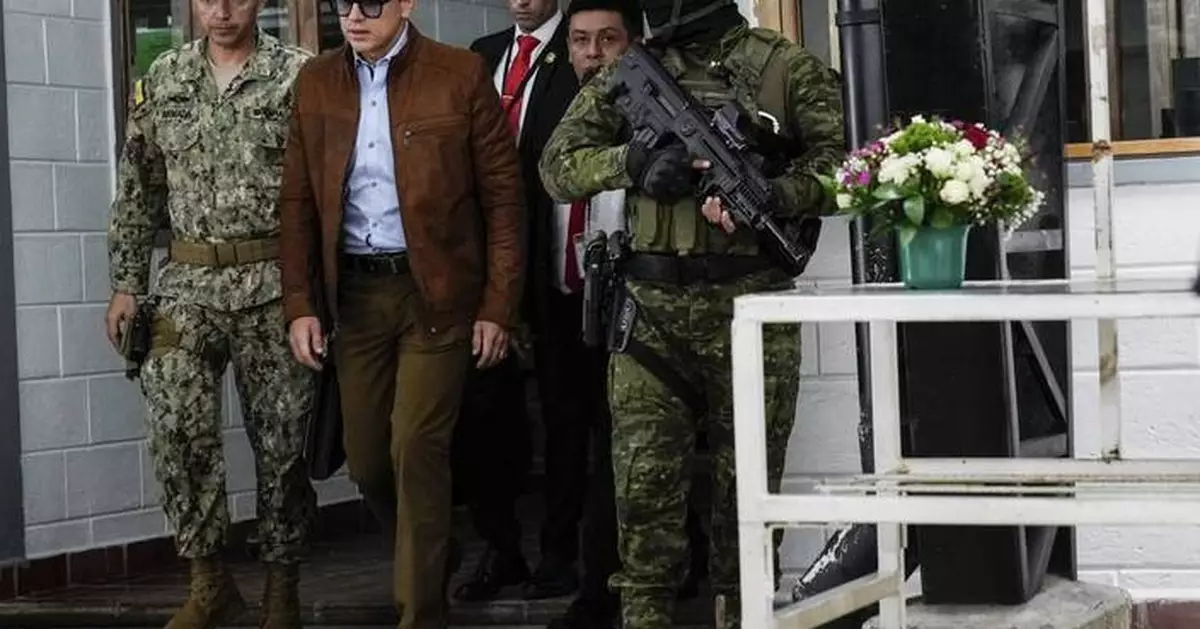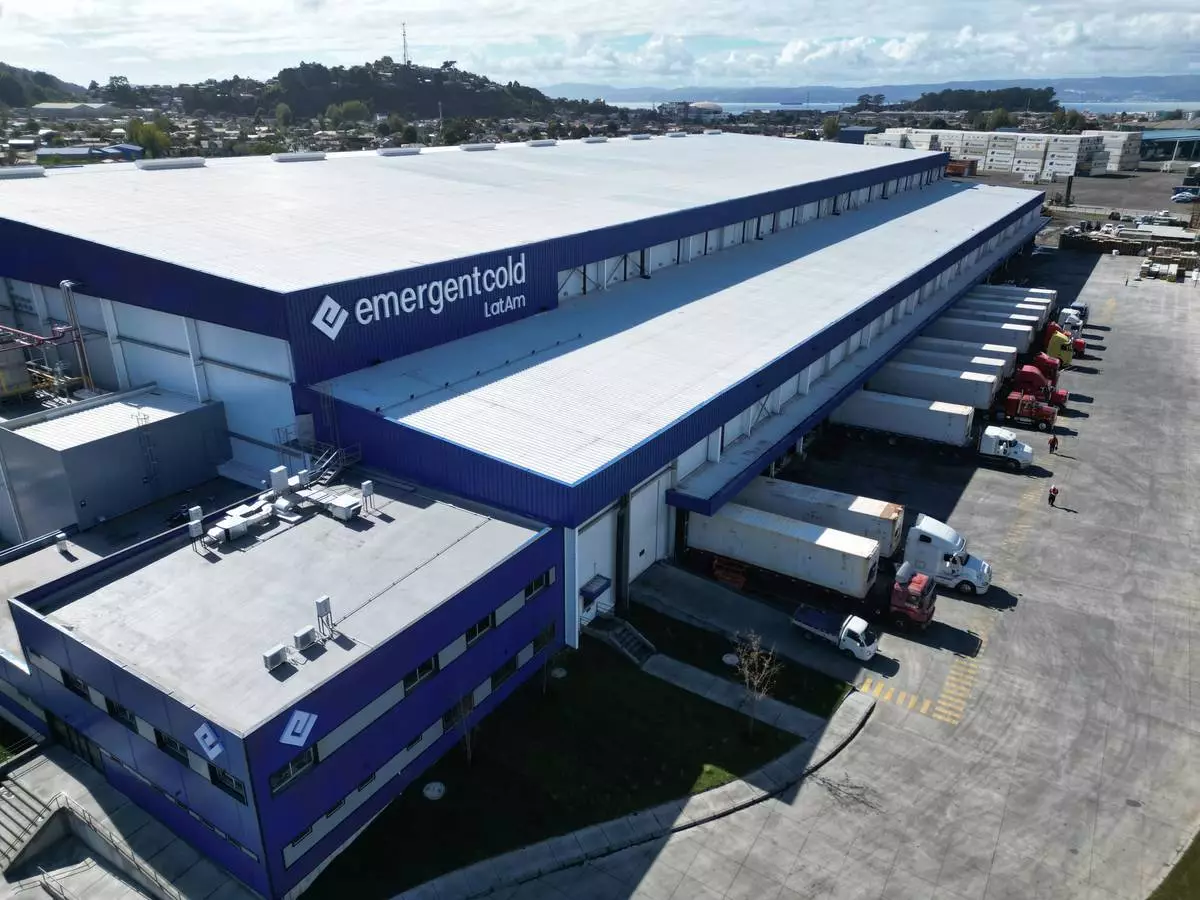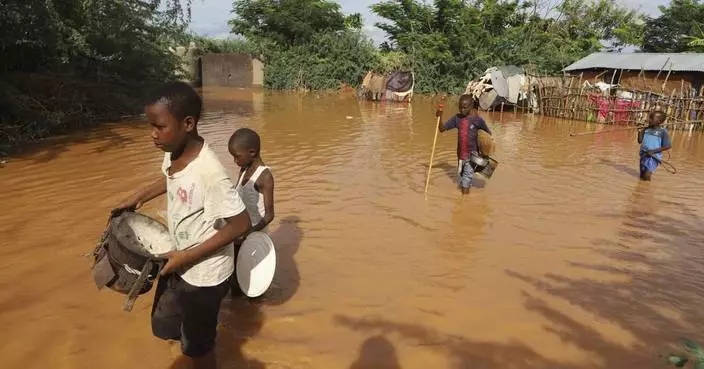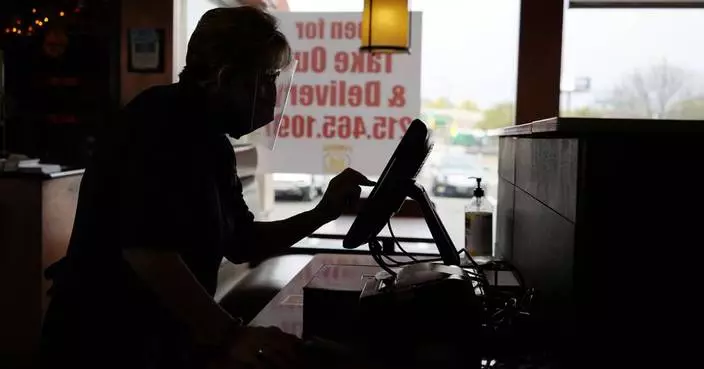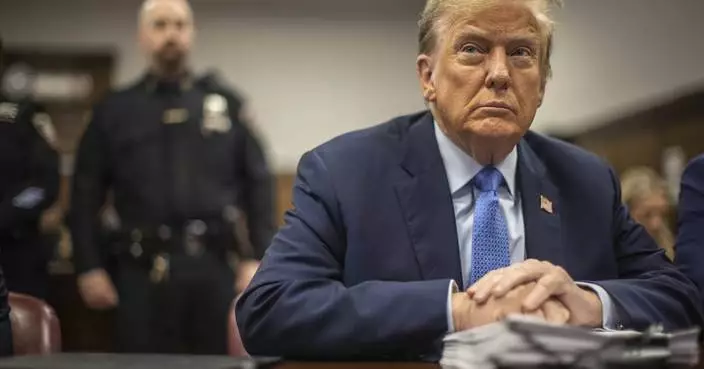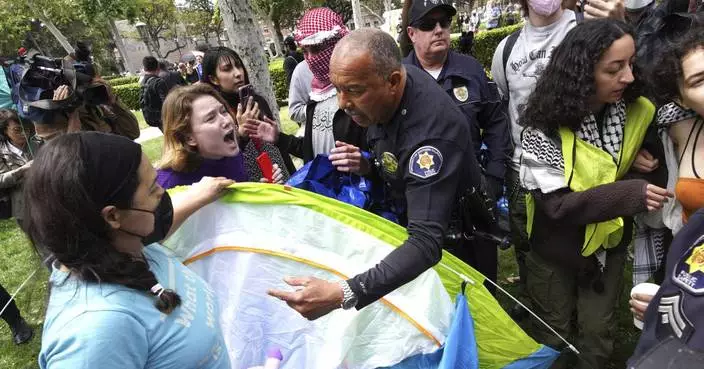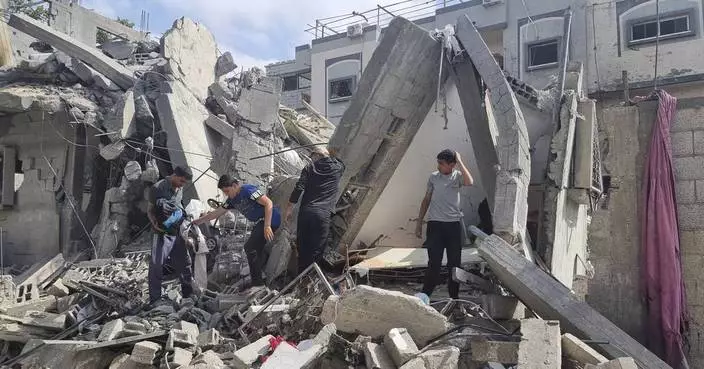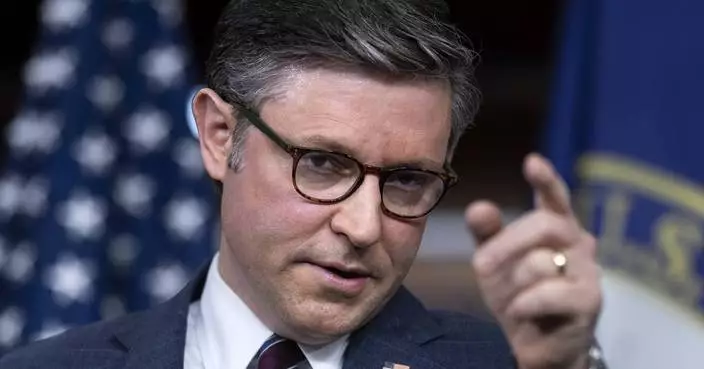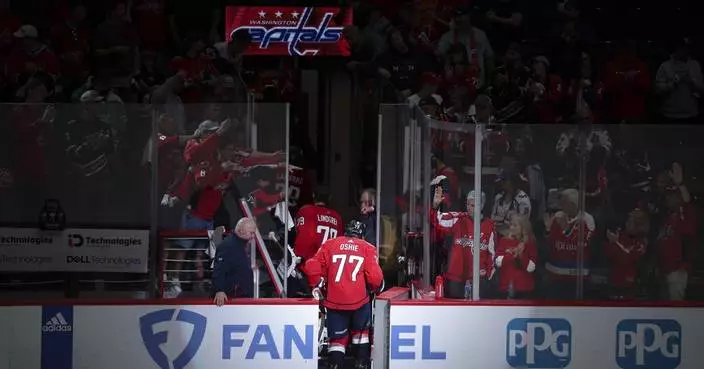QUITO, Ecuador (AP) — While world leaders have expressed shock and bewilderment over Ecuadorian President Daniel Noboa’s decision to raid Mexico’s embassy last Friday, the extraordinarily unusual move — and Noboa's relative silence about it — is unlikely to hurt him with his constituents. In fact, it’s exactly the sort of no-holds-barred crimefighting they expect and voted for.
Ecuadorians were looking for their action man last election, fed up with widespread corruption and the robberies, kidnappings, extortions and murders fueled by the growing presence of international drug cartels. Noboa, often sporting bulletproof vests, sunglasses and leather jackets as well as the occasional smart-casual white T-shirt, so far seems to be fulfilling that role. If stopping lawbreakers in their tracks means breaching an embassy, then so be it, Ecuadorians interviewed over the weekend told The Associated Press.
“President Noboa has given a strong message to the nation," said Carlos Galecio, a political communications consultant and coordinator of the communications program at Ecuador's Casa Grande University. “(It's) a very powerful image boost.”
Noboa, the 36-year-old heir to one of Ecuador's largest fortunes, was sworn in as president in November after unexpectedly winning a special election in August. He defeated the protege of leftist ex-President Rafael Correa, who avoided serving a prison sentence related to a corruption conviction by moving to Belgium and securing asylum there.
Noboa inherited a country where people no longer leave home unless absolutely necessary, almost everyone knows a crime victim and many consider migrating. Statistics back those decisions and experiences: Last year was Ecuador’s bloodiest on record, with more than 7,600 homicides — up from 4,600 the prior year.
The causes for the spike are complex but largely revolve around cocaine. Cartel-aided gangs are battling for control of the streets, prisons and drug routes to the Pacific. Dwindling state coffers, soaring debts, political infighting and corruption created funding gaps in social and law-enforcement programs. And the COVID-19 pandemic turned hungry children and unemployed adults into easy recruits for criminal groups.
Noboa has responded by promising more equipment for police and the armed forces and the construction of prisons similar to those President Nayib Bukele built in El Salvador, with high-security, maximum-security and supermax units. He also issued a decree labeling more than 20 criminal groups as terrorist organizations and scheduled an April referendum to ask voters to extend the powers of the military to patrol the streets and control prisons.
Recent survey results from Ecuador-based public opinion firm Cedatos showed that more than two-thirds of respondents approve of Noboa's presidency and more than half support his decision to summon voters to the polls.
Police entered the Mexican embassy in Quito, the capital, to arrest former Vice President Jorge Glas, a convicted criminal and fugitive who had been living there since December. In his first comments on the operation, Noboa said Monday he has made “exceptional decisions to protect national security, the rule of law and the dignity of a population that rejects any type of impunity for criminals, corrupt people or narco-terrorists.”
“My obligation is to comply with the rulings of the justice system, and we could not allow sentenced criminals involved in very serious crimes to be given asylum,” which, Noboa argued, would violate the Vienna Convention and other international accords. In a statement posted on the social platform X, Noboa did not mention Glas by name but suggested he was in “imminent flight risk.”
Diplomatic premises are considered foreign soil and “inviolable” under the Vienna treaties and host country law enforcement agencies are not allowed to enter without permission from the ambassador. Mexico plans to challenge the raid at the World Court in The Hague.
Still, Noboa's display of force quickly earned him praise at home.
“I am in favor of President Noboa’s actions. I think it is a courageous act ... and I think it is going to strengthen him,” college professor Gabriela Sandoval said. “The priority is to clean, sanitize, continue with a process as important as President Noboa's to put the house in order.”
Ecuadorians will vote for president in February. Noboa is eligible to run for reelection.
Confidence in Noboa is such that business groups think the global condemnation of the raid will not impact commerce or the already thorny trade agreement negotiations between Ecuador and Mexico, which represent a key barrier to Ecuador's interest in joining Latin America's Pacific Alliance trade bloc.
“These political and current issues will somehow pass, and then, relations will go back to normal,” said Roberto Aspiazu, vice president of the Binational Ecuador-Mexico Chamber. “Sooner or later, that trade agreement is also going to be a reality because the negotiation is there and must be resumed at some point.”
Still, the timing of the diplomatic breakdown with Mexico could be particularly unfortunate for Ecuador and counterproductive for Noboa’s crimefighting ambitions, said Will Freeman, a fellow of Latin American studies at the New York-based Council on Foreign Relations think tank.
Ecuador was one of the calmest countries in Latin America until about four years ago, when Mexican and Colombian cartels expanded their established Ecuadorian operations, settling into coastal cities and exploiting world-class ports to ship hundreds of millions of dollars of cocaine produced in neighboring Colombia and Peru.
“Ecuadorian gangs are criminal powers in their own right, but they have brokered alliances with Mexico’s Sinaloa and Jalisco New Generation Cartel cartels,” Freeman said. “In an ideal world, Noboa would seek out the Mexican government’s cooperation to combat the gangs and their international partners, but clearly, with the break in diplomatic relations, that’s not happening.”
And though it remains unclear whether Noboa expected the global pushback his decision received, some of that criticism might weigh more heavily than others.
The U.S., which during Noboa's administration has supplied Ecuador with crucial equipment and training to combat the drug cartels, reiterated the importance of complying with international law following last week's raid.
“The United States takes very seriously the obligation of host countries under international law to respect diplomatic missions,” said Brian Nichols, assistant secretary of state for Western Hemisphere affairs. “We encourage Ecuador and Mexico to resolve their difference amicably.”
Garcia Cano reported from Mexico City.
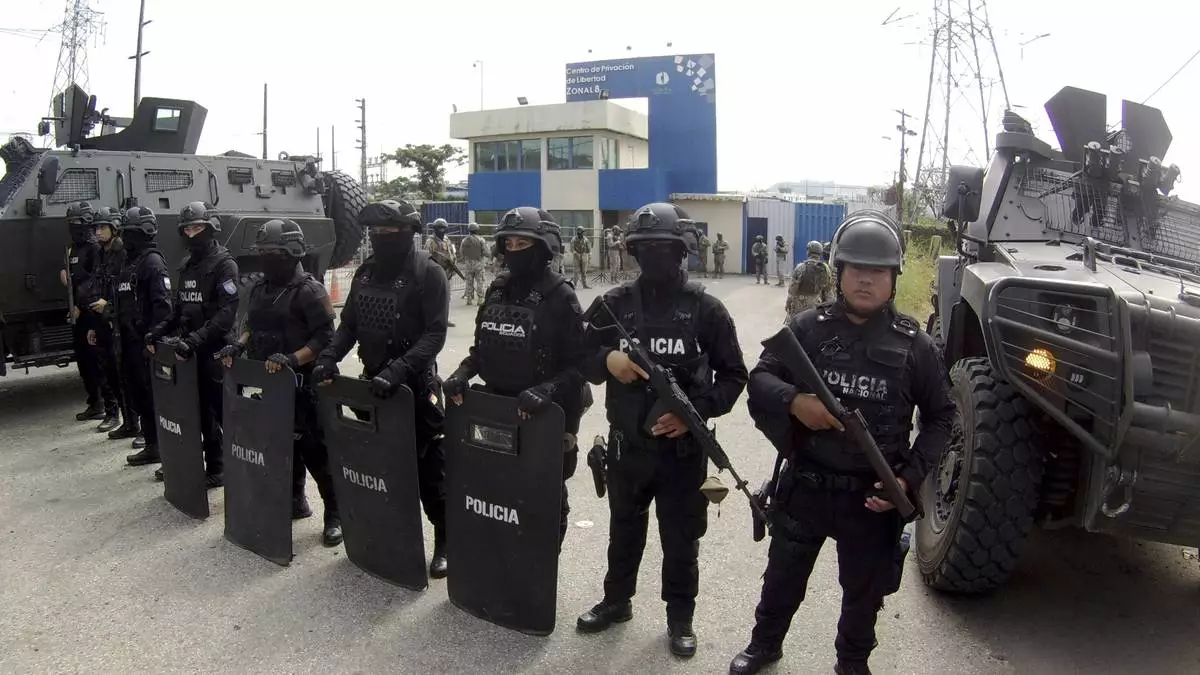
Police stand guard at the entrance of the penitentiary where former Vice President Jorge Glas is being held, in Guayaquil, Ecuador, Saturday, April 6, 2024. Ecuadorian police broke through the external doors of the Mexican Embassy in Quito, Friday evening, to arrest Glas, who had been residing there since December. (AP Photo/Cesar Munoz)
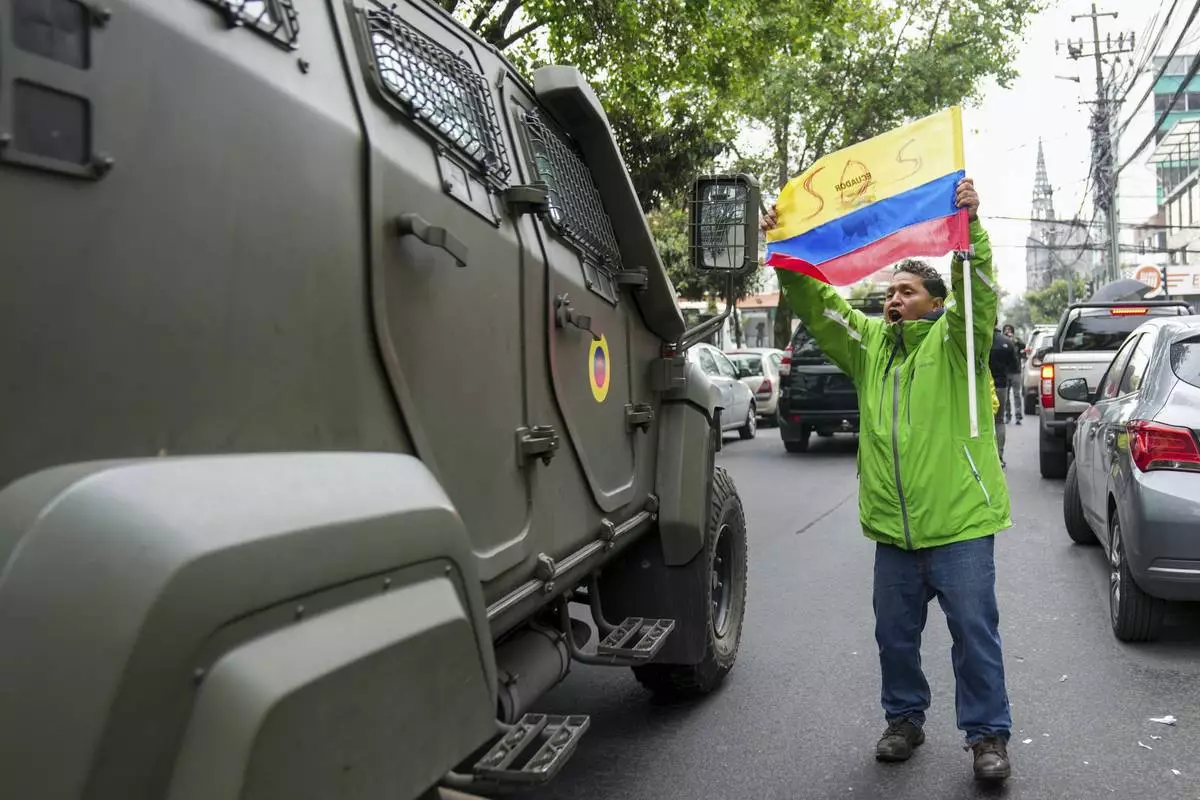
A supporter of former Ecuadorian Vice President Jorge Glas protests as a military vehicle transports him from the detention center he was held following his arrest at the Mexican Embassy in Quito Ecuador, Saturday, April 6, 2024. Glas, who held the vice presidency of Ecuador between 2013 and 2018, was convicted of corruption and had been taking refuge in the embassy since December. (AP Photo/Dolores Ochoa)
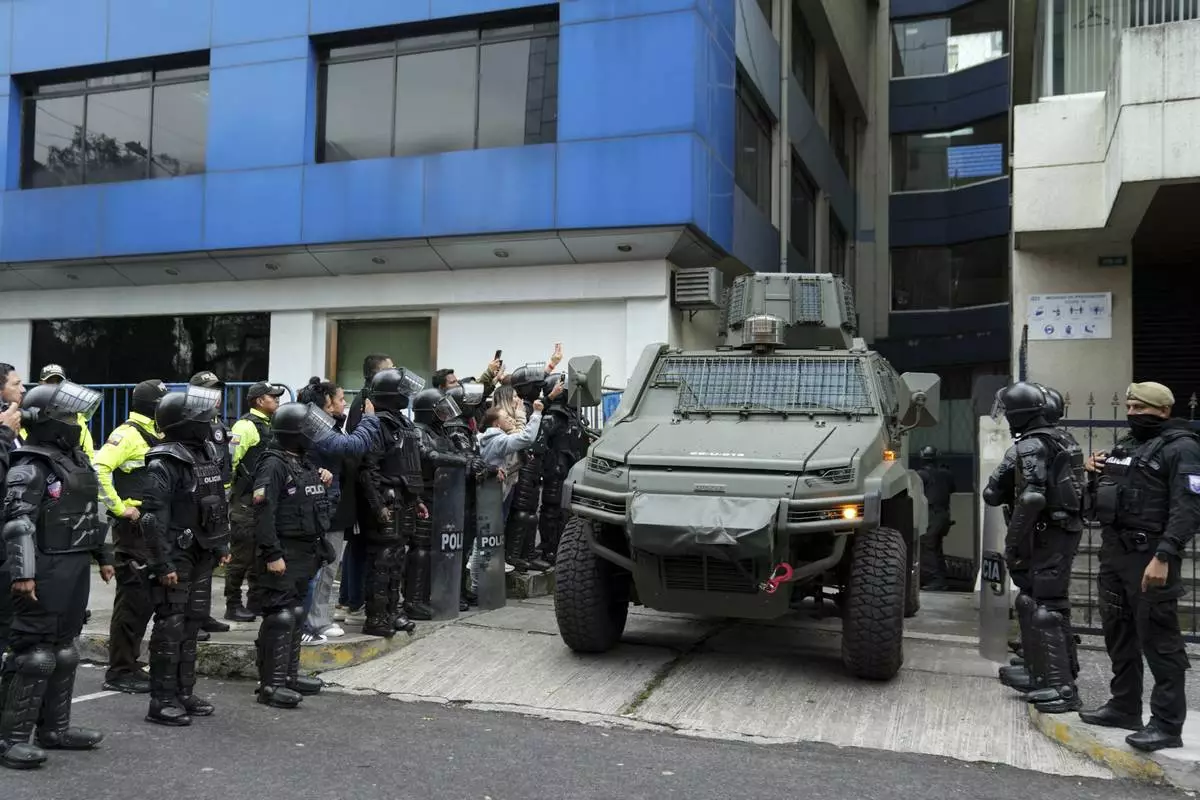
A military vehicle transports former Ecuadorian Vice President Jorge Glas from the detention center where he was held after police broke into the Mexican Embassy to arrest him in Quito, Ecuador, Saturday, April 6, 2024. Glas, who held the vice presidency of Ecuador between 2013 and 2018, was convicted of corruption and had been taking refuge in the embassy since December. (AP Photo/Dolores Ochoa).
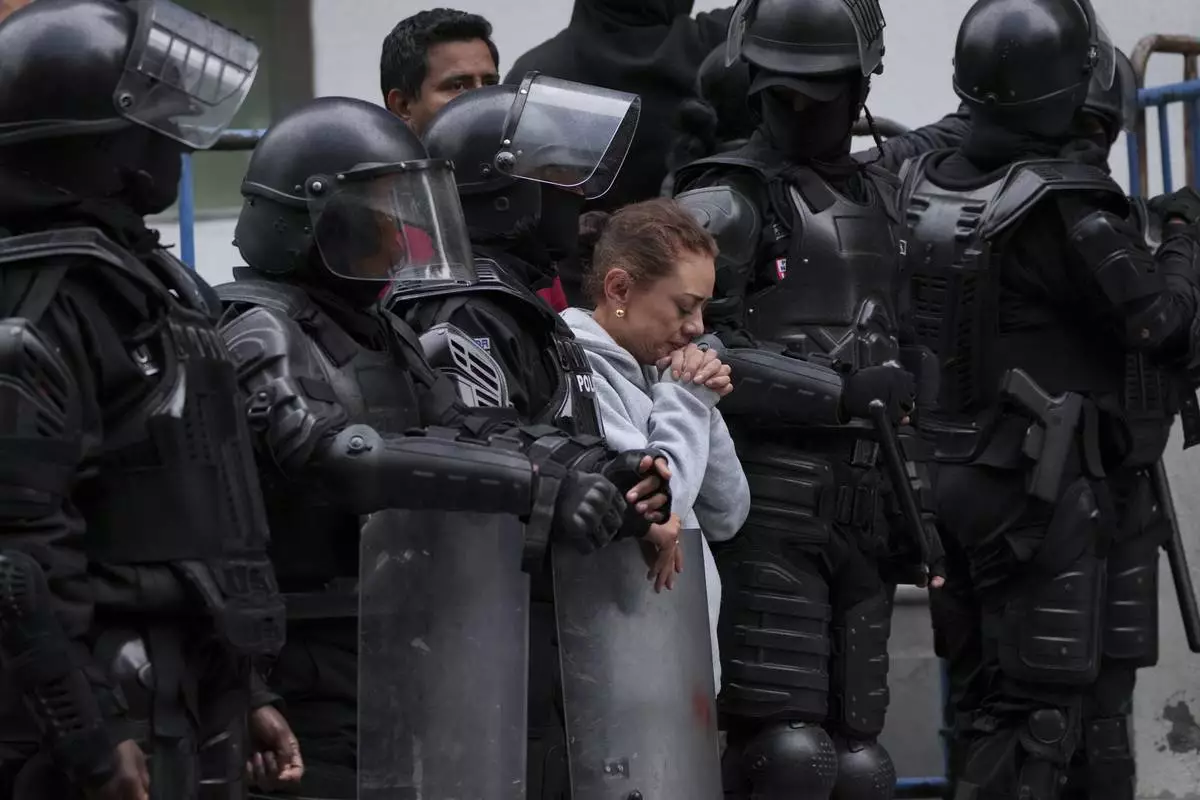
A supporter of former Ecuadorian Vice President Jorge Glas stands outside the detention center where he was taken after police broke into the Mexican Embassy to arrest him, in Quito, Ecuador, Saturday, April 6, 2024. Glas, who held the vice presidency of Ecuador between 2013 and 2018, was convicted of corruption and had been taking refuge in the Mexican embassy since December. (AP Photo/Dolores Ochoa)
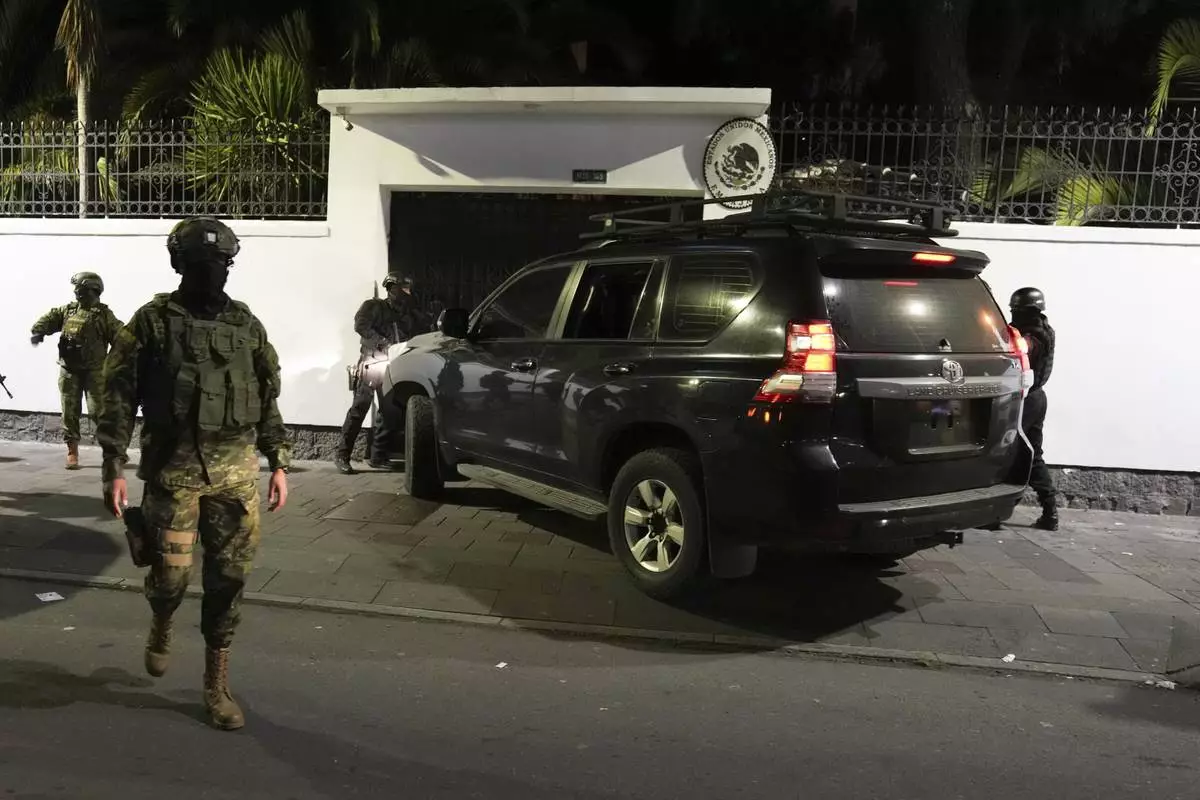
Police attempt to break into the Mexican embassy in Quito, Ecuador, Friday, April 5, 2024, following Mexico's granting of asylum to former Ecuadorian Vice President Jorge Glas, who had sought refuge there. Police later forcibly broke into the embassy through another entrance. (AP Photo/Dolores Ochoa)
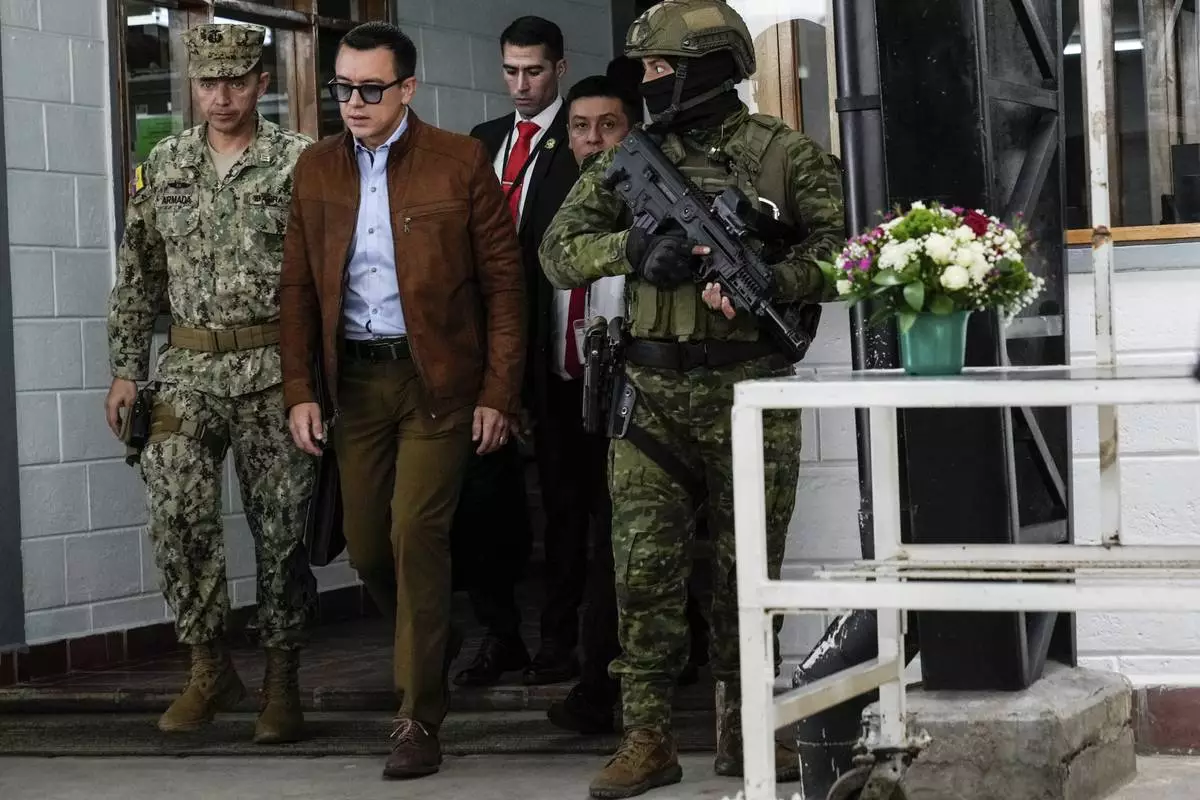
President Daniel Noboa arrives for an event with youths in El Quinche, Ecuador, Monday, April 8, 2024. (AP Photo/Dolores Ochoa)


